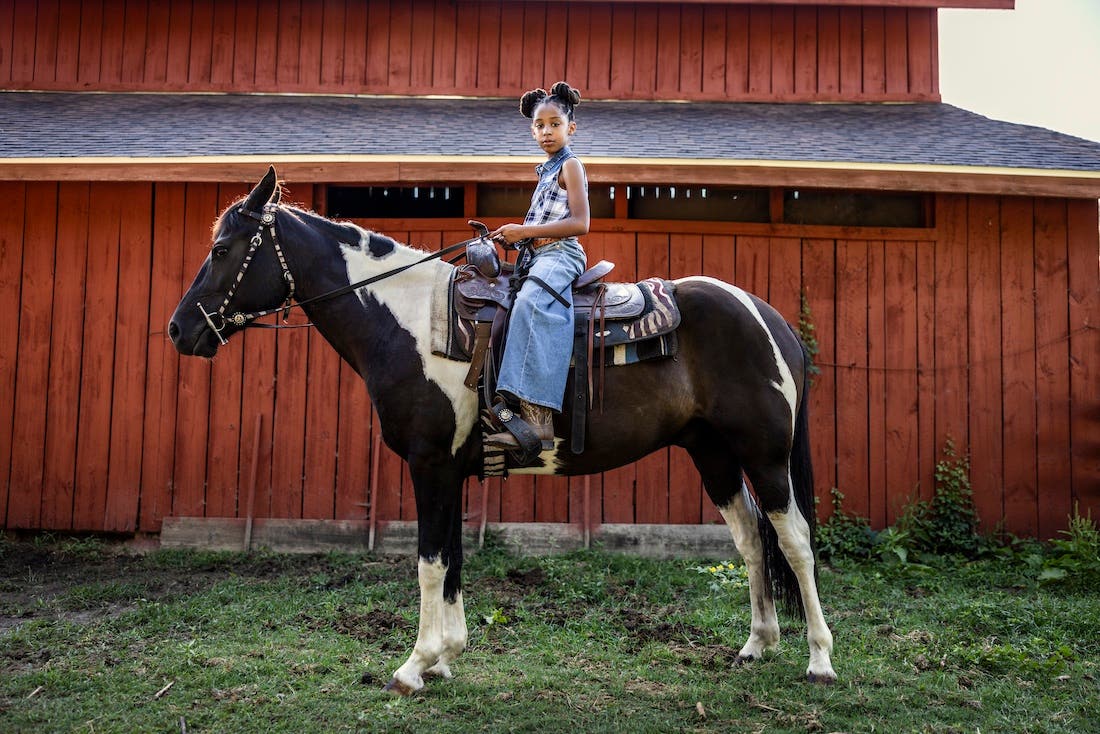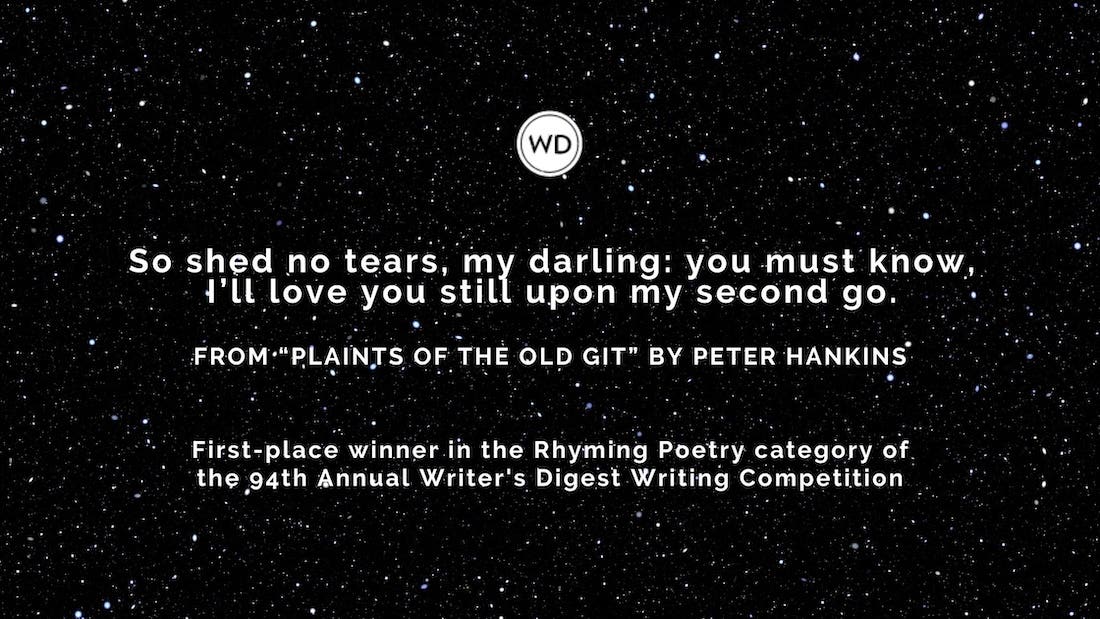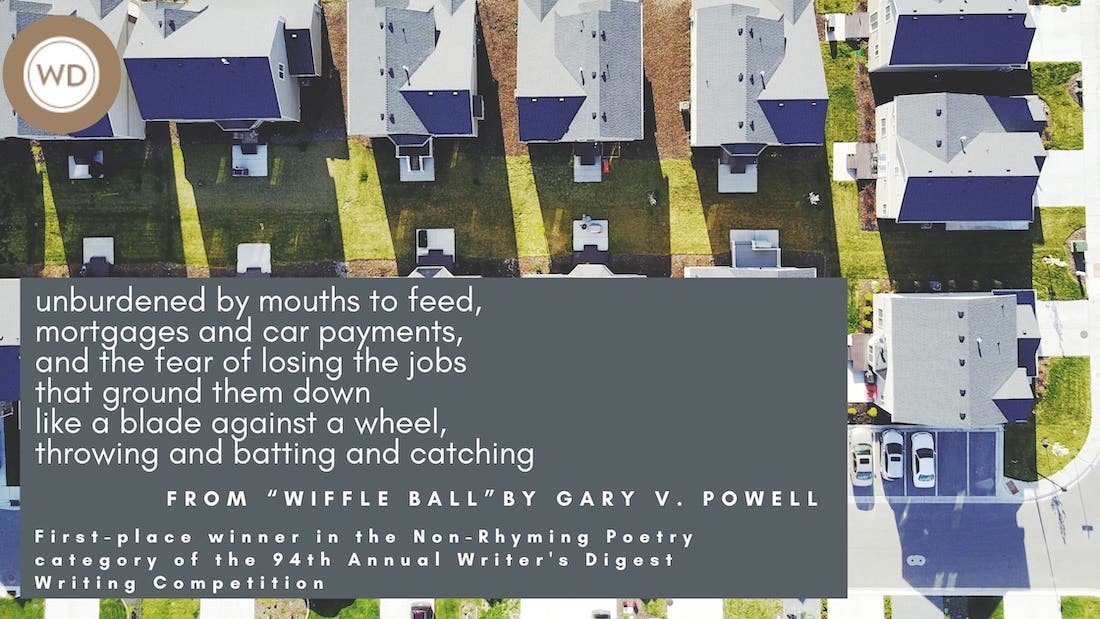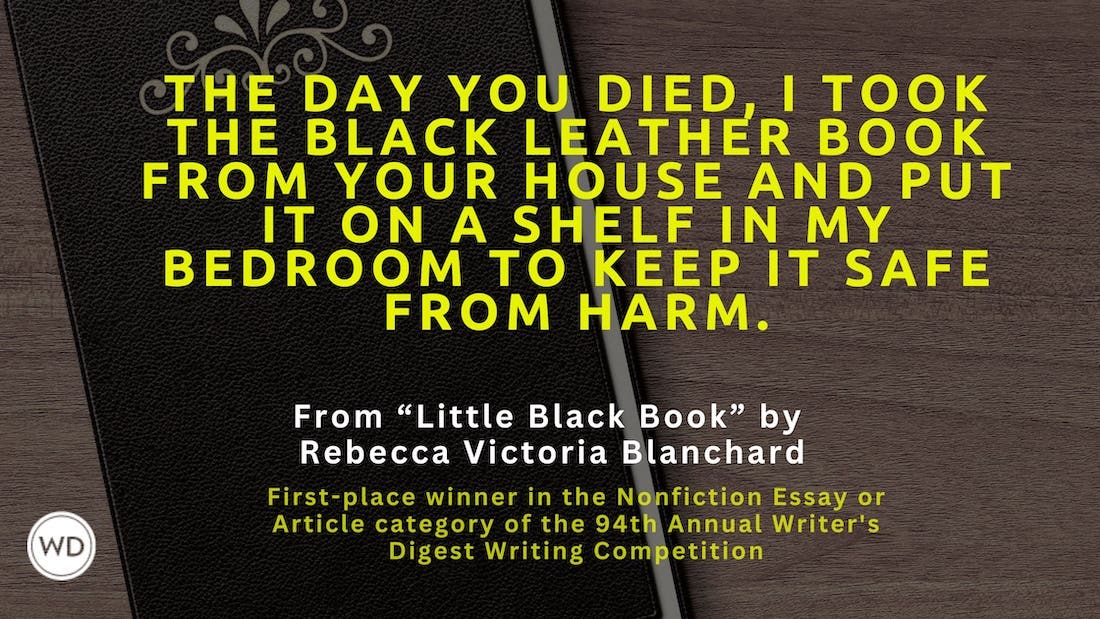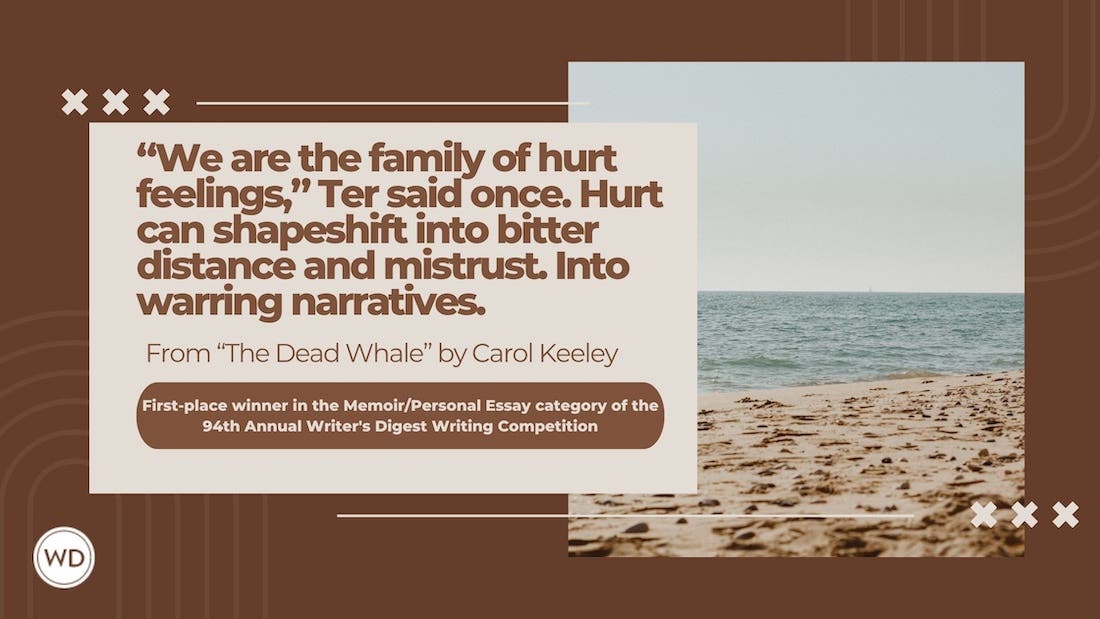Suspended: Writer’s Digest Personal Essay Awards Winner
Congratulations to J.E. Stamper, grand prize winner of the Writer’s Digest Personal Essay Awards. Here’s his winning essay, “Suspended.”
Suspended
By J.E. Stamper
She’s a ravenous beast dressed in a twelve-year-old’s skin. I watch as she devours her victim, shredding it apart in a flurry of claws and hair laced with a healthy dose of profanity. Terrified onlookers scurry for cover, seeking shelter in classrooms, lockers, restrooms, garbage cans.
I squint and lean in, scrutinizing the fuzzy security cam footage. I look up at the tiny slip of a girl sitting across from me, then back down at my computer screen.
Jesus Christ, I think, squeezing my eyes closed and pinching the bridge of my nose. A long sigh deflates me.
Through the wall behind me, I can hear the victim sobbing in the infirmary, her wails overpowering the nurse’s soothing coos.
I look up again. She’s not paying me the slightest bit of attention. I follow her gaze and stare out the windows that overlook the street below. The sky is October clean, a crisp blue canvas dappled with storybook clouds. A breeze stirs the schoolyard trees, sending sunnygold leaves spiraling earthward. The afternoon is startling in its beauty, almost painful in its perfection.
I pull myself back to reality and clear my throat. I can stare out the window later. I’ve got a job to do.
Time to put on my best assistant principal voice.
“This behavior is absolutely unacceptable at this school, young lady,” I say, aiming a disapproving frown her way.
She’s a statue, her skyward stare chiseled into her red face.
I try again with another ham-fisted authoritarian dictum.
I don’t really know how I expect her to react, but something would be nice—a sudden show of remorse, a tearful apology, a misguided shot at a justification, even a terse nod. Anything, really.
I interpret her continued silence as an act of cold defiance. A slap in the face.
“Do you have anything to say for yourself, young lady?” I ask, a razor creeping into my voice.
I’m a couple months into my first year as a middle school assistant principal. I’ve already dished out small doses of the school’s justice, but this is my first major case. I’m still bubbling over with preconceptions of how kids should react when confronted by the highest authorities.
I punch a few keys, and her student file pops up on my laptop screen. As I peruse her lengthy dossier, I toy with an orange on my desk. Rescued from a garbage-bound lunch tray, it’s been sweating in a sealed plastic bag as it awaits its inevitable afternoon consumption. The plastic crinkles as my mindless fingers play.
This is her second go at sixth grade. Truancy, fighting, profanity, and gross insubordination color the pages of her story.
She’s been here before.
I minimize the window and run through the video again. She’s clearly the aggressor, so this is an easy one. I go by the book, and the book says three days for fighting. As judge, jury, and executioner, I tell her she’s welcome to come back to school on Friday.
Her eyes remain fixed on that distant autumn paradise, but my words finally elicit a reaction. She squeezes her eyes closed. A single tear oozes through and tumbles down her cheek.
I suppress a smile of vindication. Finally, I think, congratulating myself on an effective principaling session. Now I’m getting somewhere.
She turns and finally speaks. In the coming years, when I replay this scene in my mind, I mark these five words as the ones that transformed me.
“Can I have that orange?” she asks, her reddened eyes fixated on the fruit.
Her words wreck me.
She suddenly snaps into focus. A veil has been torn away, and I finally see her for the first time.
She gasps, stunned by her own forwardness. She covers her mouth, afraid of leaking more secrets. The fingernails of that hand are bloody remnants, bitten and torn down to the quick. Her baggy, threadbare hoodie falls down past her elbow, revealing her wrist and forearm. Were I to wrap my hand around that arm, even at the thickest part, I’m sure my fingers would overlap my thumb. Three small, circular scars stand out pink against the dingy landscape.
She’s deflated, the air of anger and defiance gone with those startling words. The chair suddenly swallows her whole. Her dilapidated shoes, a ragged strip of duct tape holding one sole to its upper, just skim the floor. She’s at least a year older than her classmates, but she’s by far the tiniest of them. Her insubstantial frame barely drives a dent into the faux leather padding beneath her. The dark circles around her eyes divulge untold numbers of sleepless nights.
The classes I took and the books I read made it seem so simple, so clean. It’s a familiar equation: kid breaks rule, a frowny-face principal person doles out punishment, balance is restored. Easy-peasy.
Three days’ suspension for fighting, I think.
But what am I suspending her from? Food? Safety? Love, even?
The book says three days, but in this case, I’m certain the punishment does not fit the crime.
I slide the orange across the desk. She takes it and stashes it in her backpack.
My eyes burn. I draw in a ragged breath.
“Excuse me,” I say, and dash out of the office.
I pillage, scouring my colleagues’ offices and classrooms like a Viking raider. Granola bars, cans of soup, crackers, and other forgotten tidbits appear from hiding. Purses, cabinets, and drawers are cleared of edibles.
When I return to my office a few minutes later, she has to let me in because my arms are too full.
I tell her to dump the books to make room for the food. We don’t talk after that. I suppose we’re both too afraid to break the silence and release our dammed-up emotions. But we don’t really need to talk. There’s an understanding, a silent bond between us, cemented by those five little words.
Can I have that orange?
I call six times before her mother finally answers the phone. Her voice is slurred, confused, thick with sleep.
It’s two in the afternoon.
She curses under her breath as I detail the transgression and the sentence. I don’t tell her about the orange or the rest of it. She agrees to come right away and take possession of her daughter.
While we wait, I respond to a few emails while she drowses in the chair, a sunbeam dancing on her face. She clutches the glutted backpack to her chest.
The ringing of my desk phone shatters our new peace. She starts and nearly tumbles out of the chair. It’s the receptionist. She announces the arrival of Mom.
Her mother pecks at my door a few seconds later. She’s dressed in a dingy spaghetti strap tank top and pajama bottoms printed with faded pictures of cartoon characters. I motion her in, and the scent of cigarettes and burning plastic wafts in after her. The odor easily overpowers the generous layer of dollar store body spray she’s trying to hide behind. She gives her daughter a sideways glance and plops into the seat next to hers.
If the girl is scrawny, then the mother is emaciated. The bones beneath her exposed, leathery skin protrude at sharp angles. Her cheeks are sunken, pulled taut against toothless jawlines.
She fidgets incessantly as I recount the afternoon’s events. She scratches at raw patches of skin with dirty fingernails and twitches and shakes until I think she’s going to fall out of the chair. Her bloodshot eyes never so much as look her daughter’s way.
“I swear I just don’t know what’s gotten into her,” she says, shaking her head. “I don’t know where she’s learning this kind of behavior. We certainly don’t believe in this kind of thing in our home.”
I’m going to need a shovel for all this B.S.
She promises me that I’ll see a changed girl when she comes back on Friday. I nod and smile. What good would it do to call her out? My blood boils with the things I want to say to this lady, but is there anything I can possibly say that won’t be taken out on the girl once she’s out of my sight?
They depart. The girl looks back at me as she trails behind her mother. We lock eyes, conversing without words, two people who want to say so much but dare not speak.
I look for them out the window. The afternoon seems less perfect now, obfuscated by some ethereal dimness. I open the window just a smidge when they walk by on the sidewalk below. I hear snippets of conversation.
“Mom,” she scolds. She walks with her head down, eyes fixed on the sidewalk.
Mom utters a phlegmy laugh. “Hope you taught that little prep a lesson,” she spits.
“It’s not funny, Mom,” Daughter says. “I don’t want to be like that.”
Mom scoffs. “Don’t be stupid,” she says.
Mom notices the bulging backpack. She stops walking. She wants to know what that’s all about.
“Just books and stuff, Mom,” says the girl. “I’m suspended three days, lots of homework.”
They’re almost out of earshot. Mom grunts some response I can’t hear, but I think I can make out the words, “Leave me alone.”
At the corner of the building, the two share a few more words. Daughter’s eyes remain fixed downward. Mom lights up a fresh cigarette and blows a puff in Daughter’s direction.
Then they part ways. Mom turn and heads downtown. Daughter trudges onward, a castaway from both mother and school, bobbing aimlessly toward God only knows what.
Alone.
My hand trembles across the keypad as I ring social services. I tell the intake worker what I’ve seen and what I fear, praying that my legally mandated report doesn’t bring hellfire raining down upon her head.
The highway miles slip away as I head home toward my wife and children. My thoughts remain with the girl. I don’t know it yet, but she will come to haunt my mind many times.
A country singer croons a soulful tune in the background as I replay the scene. His gravelly voice tells the world that love makes him a millionaire.
I think of her. Now and forever I think of her.
I look homeward. My tears, suspended, finally break free.




